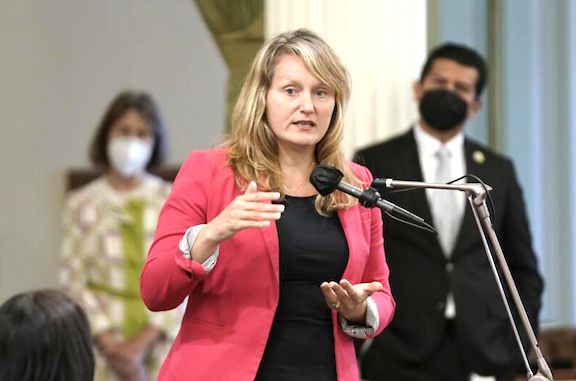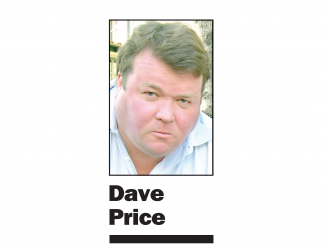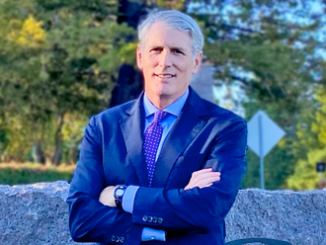
BY DAVE PRICE
Daily Post Editor
Readers are the big loser in a deal that calls for Google to pay $110 million over five years to compensate newsrooms for the articles they’ve been stealing.
The deal was reached behind closed doors. Today, a week later, we still don’t know details about how it will work.
This all started when legislators noticed newspapers were going out of business due to a lack of advertising. Google was gobbling up ad dollars that used to stay in the community. And to draw people to their ads, they stole stories out of local newspapers.
Newspapers blew it by not going after Google in court for copyright infringement. After all, cable and satellite systems have to pay TV stations to air their channels. If you own a bar and want to play music, you have to buy a license from a service that compensates the musicians. So why shouldn’t an internet platform have to pay a fee to use news stories created by local journalists?
But the newspaper industry never got its act together to fight Google. Over time, newspapers began closing in record numbers. Entire counties in California have no local paper.
So Sacramento Democrats jumped into the fray. This year, the California legislature was moving forward on two bills to tax Google and other Big Tech companies for stealing news. The tax revenues would have gone back to local newspapers.
But the author of one of those bills, Assemblywoman Buffy Wicks, D-Berkeley, caved to pressure from Google. So they huddled behind closed doors and arrived at this deal. It calls for Google to pay $110 million over 10 years. That’s about what Google’s gross revenues are for three hours. The state would pitch in $70 million in tax dollars.
From that pot of money, an AI initiative will gobble up $62 million for some accelerator project that will supposedly help local news.
After the AI project gets its share, about $118 million will be paid out to local newspapers over five years. That’s $23.6 million a year.
The deal calls for the UC-Berkeley journalism school to create a board that will decide which news organizations will get the money. We don’t yet know the rules this board will follow — what newspapers qualify for funding? What if a newspaper writes something objectionable to the board? Will controversial articles require advance approval?
You may recall a few years ago when then-Assemblyman Rich Gordon said he didn’t think this newspaper, the Daily Post, was a real newspaper. We apparently wrote a story that offended him. I suspect this board will be filled with Rich Gordon types who arbitrarily decide whether a publication is a newspaper or not.
Reporters at these state-funded papers will engage in self-censorship and avoid stories that would jeopardize their funding. A story about Gov. Gavin Newsom dining at the French Laundry in the middle of the Covid lockdown would never see the light of day. But get ready for stories about how local politicians are doing a great job filling potholes on El Camino Real.
This deal should have been the topic of public hearings. But Big Tech and the Sacramento Democrats wanted to avoid public scrutiny. They just wanted to put out a press release saying they “saved local journalism.”
Hardly.
Instead of handling out welfare to newspapers, the state should leave the press alone. Let newspapers fail or succeed on their own. There will always be a demand for good journalism. The papers that provide that service will prosper without a state subsidy; the ones that don’t will fail.
Dave Price is editor of the Palo Alto Daily Post.




Looks like Google came out of this unscathed and the newsies were screwed. I’d like to know who thought it would be a good idea to have an airhead named Buffy negotiate this crappy deal.
This is the first step towards state-owned media. I wonder if these legislators have ever heard of Pravda or TASS? If you say “Pravda” to Buffy she’ll think you meant Prada, a line of women’s clothing.
I think all news outlets should be state funded and managed for quality control. Often stories are very damaging to people’s reputations. And some newspapers, like the Palo Alto Daily Post, print information that nobody needs to know. I mean how did a DUI arrest in which nobody was injured become news? Yet there it is in that rag of a paper.
Articles should be submitted to a board of community members who would decide if the story is fair and accurate. A newspaper who refuses to participate in this community review of their content should face steep fines that would put them out of business in a day.
HK apparently doesn’t understand that Pravda and TASS are managed by the state, as pointed out by Gordon. What HK is suggesting has a name: censorship. We already have “community reviews” banning books in some parts of the country. Which community members (presumably in addition to HK himself) should we trust to decide if a story is fair and accurate?
I can see making Google pay for what it is stealing, but why do taxpayers have to contribute to this fund? Us taxpayers weren’t at fault here. No wonder the state is running a $68 billion deficit.